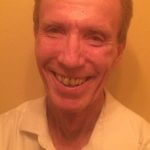On Protecting Privacy, Zuck Literally Says, '[I'm] Not Sure What That Means'
What word didn’t he understand?
One of the most telling moments of the many that arose during Facebook co-founder and CEO Mark Zuckerberg’s two days of testimony on Capitol Hill this week came at the hands of the woman who represents the Palo Alto area where Zuckerberg himself lives.
But if he was expecting softball questions from Rep. Anna Eshoo, a Democratic congresswoman who counts him as a constituent, Zuckerberg was in for a surprise.
When Eshoo’s turn came to grill the Facebook billionaire in front of the House Energy and Commerce Committee, she opted to ask him questions submitted by voters in her district – which means they were likely from men and women at least somewhat familiar with Zuckerberg’s business.
Posted in a video by the website Tech Crunch, they ranged from philosophical … “Do you think you have a moral responsibility to run a platform that protects our democracy?”
To granular … “When did Facebook learn that Cambridge Analytica’s research project was targeted at psychographic pollical campaign work?”
But it was Eshoo’s question about the very essence of Facebook’s business model that really got listeners’ attention.
“Are you willing to change your business model in the interest of protecting individual privacy?” the California Democrat asked.
Zuckerberg took a stab at answering, but Eshoo, cut him off and repeated the question:
“Are you willing to change your business model in the interest of protecting individual privacy?”
Zuckerberg’s response was a non-response that said it all:
“Congresswoman, I’m not sure what that means.”
Check out the exchange here:
.@RepAnnaEshoo: "Are you willing to change your business model in the interest of protecting individual privacy?"
Zuckerberg: "I'm not sure what that means." pic.twitter.com/fasOyKmU8Q— FOX Business (@FoxBusiness) April 12, 2018
Technically speaking, Zuckerberg might have had an argument for not understanding what Eshoo meant.
“What exactly was it about the business model are your referring to?” he might have asked. Or, “Can we please define ‘privacy?'”
After all, ever since President Bill Clinton made the word the “meaning of the word ‘is’” a matter of debate a generation ago, creative obfuscation by those on the hot seat has come to be expected in public affairs.
The interesting part of this, as the Silicon Valley news site San Jose Inside noted, is the question came from a politician who should well have been a friendly questioner. According to Business Insider, Eshoo has received almost $18,000 in campaign contributions from Zuckerberg’s second-in-command, Sheryl Sandberg.
The congresswoman has received almost $4,000 from Facebook itself over the past four years.
Still, her privacy question was a tough one. And the reality is, Zuckerberg knew very well what Eshoo was asking. It was whether Facebook would be willing to give up its entire way of doing business, give up the user data it had used to make itself one of the wealthiest corporations in the world, and make Zuckerberg a billionaire many, many times over.
And the reality is, the answer to those questions is “no.”
The marketing of personal user data for advertising is how Facebook became the techno colossus that it is today – it’s raison d’etre.
Zuckerberg couldn’t answer the question honestly without infuriating every politician on that dais — and millions of Americans at home.
But he understood every word.
Truth and Accuracy
We are committed to truth and accuracy in all of our journalism. Read our editorial standards.
Advertise with The Western Journal and reach millions of highly engaged readers, while supporting our work. Advertise Today.












